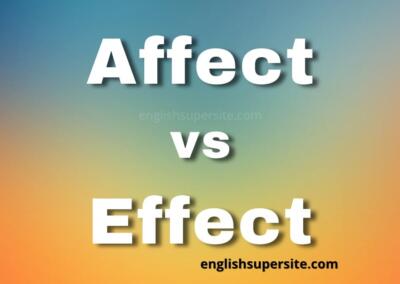
Past Perfect Continuous
Sometimes called Past Perfect Progressive, the Past Perfect Continuous is one of the Verb Tenses associated with the Past Tense in English.
We use Past Perfect Continuous to express that an action started in the past and has continued up to a moment in the past. It emphasizes duration and the amount of time that an action had been taking place.
Quick Example
- You had been studying English for three hours when I arrived.
- You had not been studying English for three hours when I arrived.
- Had you been studying English for three hours when I arrived?
Form
| I – you – he – she – it – we – you – they |
|---|
| had + been + present participle* |
*Present Participle: the form of a verb ending in -ing (infinitive + -ing), (verb + -ing).
Common Signal Words
- When
- Since (since Monday, since last month)
- For (for two hours, for two months, for ten years)
- How long…
- All day
- Before
Use
The Past Perfect Continuous is a verb tense used to express:
- An action that started in the past and has continued up to a moment in the Past.
- Cause of an action or something in the Past.
- How long…
1. An action that started in the past and has continued up to a moment in the Past
- I had been studying for two hours when she arrived.
- They had been studying for over a week when they finally took the exam.
- He had been working on that presentation for three hours when he finally finished it.
- He had been working at that company for five years when he retired.
- What had John been doing the entire week before Christmas?
- I had been reading this book for over an hour when the alarm clock went off.
- He had been working for Company XYZ for two years before it went out of business.
2. Cause of an action or something in the Past
- You passed the test because you had been studying a lot lately.
- You lost weight because you had been going to the gym.
- He failed the health exam because he hadn’t been exercising at all.
- I left my company because they had been monitoring my Internet usage.
3. How long…
- How long had you been studying English when you finally moved to Canada?
- Mary, how long had you been dating John when you married him?
- How long had you been working at Company XYZ when you retired?
- Wow, how long had they been living in Italy before they moved to Spain?
- How long had you been waiting before she arrived?
NOTE:
We usually do not use Past Perfect Continuous with Non Action Verbs.
- Believe
- Belong
- Care
- Depend
- Dislike
- Envy
- Fear
- Hate
- Know
- Like
- Love
- Mean
- Need
- Owe
- Prefer
- Realize
- Want
- Understand
Study Also:
Examples
Past Perfect Continuous using Work (Regular Verb)
| Affirmative | Negative | Interrogative |
|---|---|---|
| I had been working. | I hadn’t been working. | Had I been working? |
| You had been working. | You hadn’t been working. | Had you been working? |
| He had been working. | He hadn’t been working. | Had he been working? |
| She had been working. | She hadn’t been working. | Had she been working? |
| It had been working. | It hadn’t been working. | Had it been working? |
| You had been working. | You hadn’t been working. | Had you been working? |
| We had been working. | We hadn’t been working. | Had we been working? |
| They had been working. | They hadn’t been working. | Had they been working? |
Past Perfect Continuous using Go (Irregular Verb)
| Affirmative | Negative | Interrogative |
|---|---|---|
| I had been going. | I hadn’t been going. | Had I been going? |
| You had been going. | You hadn’t been going. | Had you been going? |
| He had been going. | He hadn’t been going. | Had he been going? |
| She had been going. | She hadn’t been going. | Had she been going? |
| It had been going. | It hadn’t been going. | Had it been going? |
| You had been going. | You hadn’t been going. | Had you been going? |
| We had been going. | We hadn’t been going. | Had we been going? |
| They had been going. | They hadn’t been going. | Had they been going? |
Past Perfect Continuous using Study (Regular Verb)
| Affirmative | Negative | Interrogative |
|---|---|---|
| I had been studying. | I hadn’t been studying. | Had I been studying? |
| You had been studying. | You hadn’t been studying. | Had you been studying? |
| He had been studying. | He hadn’t been studying. | Had he been studying? |
| She had been studying. | She hadn’t been studying. | Had she been studying? |
| It had been studying. | It hadn’t been studying. | Had it been studying? |
| You had been studying. | You hadn’t been studying. | Had you been studying? |
| We had been studying. | We hadn’t been studying. | Had we been studying? |
| They had been studying. | They hadn’t been studying. | Had they been studying? |
Study Also:
Abbreviations Adjectives Adverbs Articles Career Comparative Confusing Words Conjunctions Exercises Future Continuous Future Perfect Future Perfect Continuous Grammar Interjections Irregular Verbs Learn English Linking Words Listening Exercises Mistakes Nouns Past Continuous Past Perfect Past Perfect Continuous Plural Prepositions Present Continuous Present Perfect Present Perfect Continuous Pronouns Pronunciation Question Tags Quiz Quotes Reading Simple Future Simple Past Simple Present Spelling Strategies Superlative Tests Transition Words Verbs Verb Tenses Vocabulary
Share with your friends!



